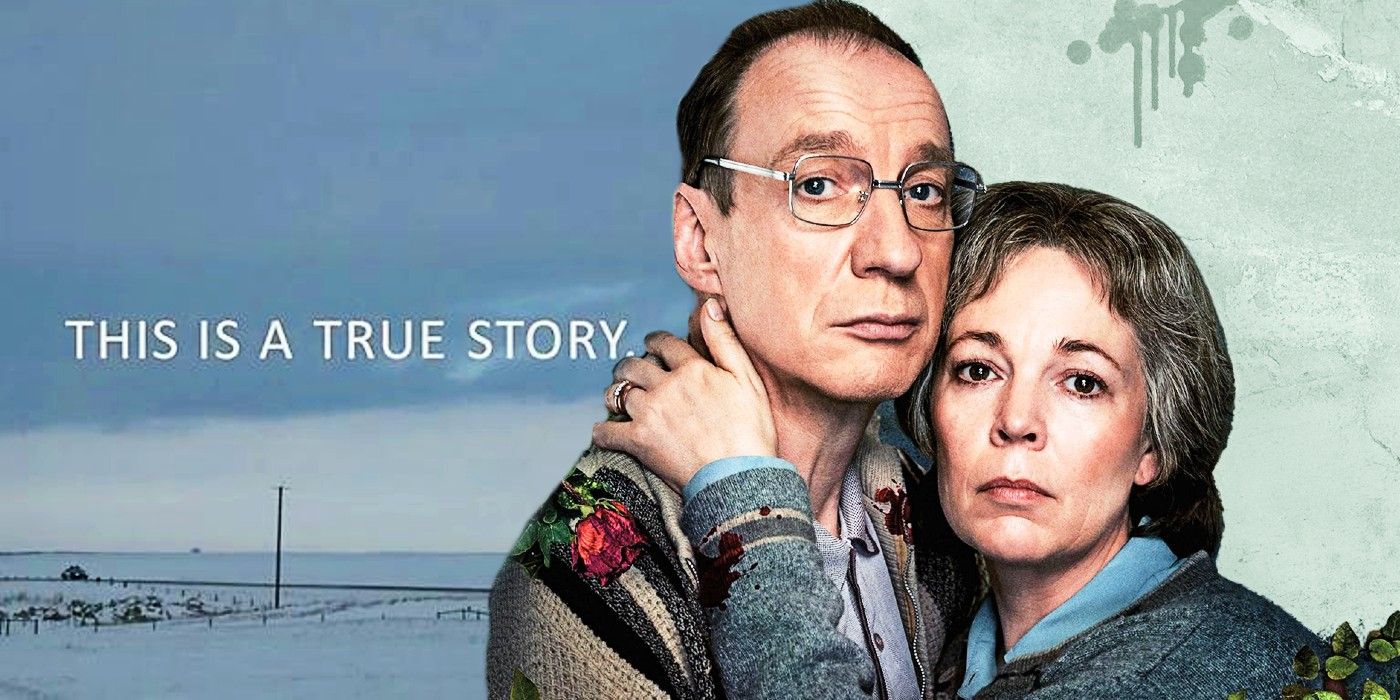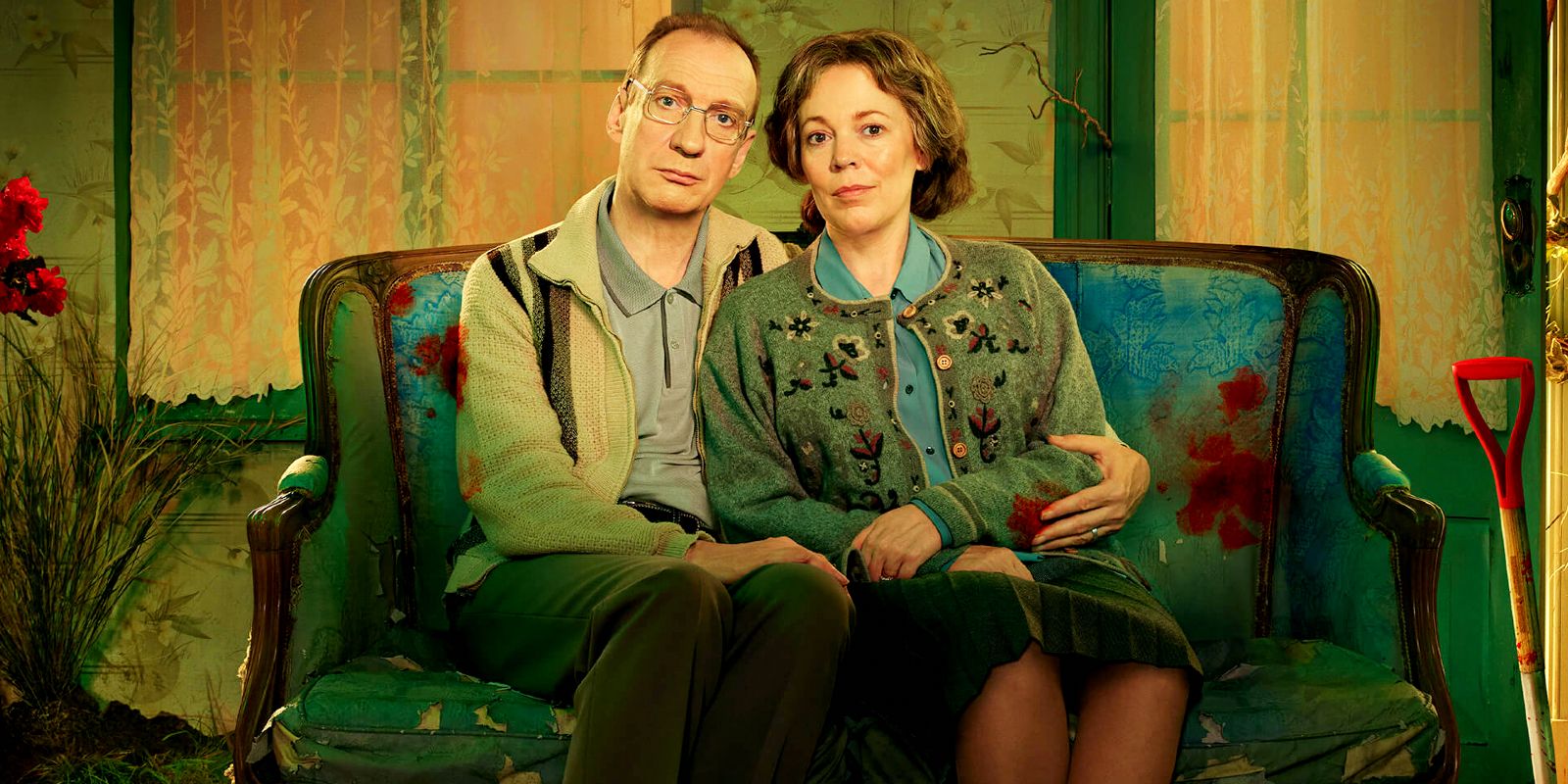Miniseries Landscapers, written by Ed Sinclair and directed by Will Sharpe, references the similar black comedy series Fargo in a subtle distortion of its true crime genre. In 2014, Susan and Christopher Edwards were convicted of the 1998 murders of Susan’s parents, Patricia and William Wycherley. Landscapers depicts Susan and Christopher’s accounts in the delayed discovery of their crime and their consequential prosecution, translating the true story of sentencing remarks and news reports into a drama that is interested in illuminating subjectivity.
Landscapers begins with Susan and Chris, portrayed by Olivia Colman and David Thewlis, residing in an apartment in France. Hollywood memorabilia and domestic artifacts furnish a home that would otherwise be considered derelict. Chris’ insufficient grasp of the language has him struggling to find work, while the purchase of a film poster sees Susan’s obsession with Gary Cooper continuing to great expense. Worryingly low on money, Chris resorts to telephoning his stepmother, Tabitha, euphemistically unveiling his and Susan’s crime in the process. Tabitha duly informs the police, and an investigation ensues. Ongoing residency in France and a lack of details make it difficult for the police to obtain an arrest warrant. However, Susan and Chris willingly return to England, surrendering themselves, motivated partly by their financial predicament, and partly by a desire to prove their innocence.
Landscapers episode 1 initially informs the viewer of Susan and Christopher’s murder conviction, their 25-year minimum sentence, and their ongoing claim of innocence. “This is a true story” is subsequently displayed on-screen, with the word “true” notably fading before the rest of the phrase. It is reminiscent of Fargo episodes, inspired by the 1996 film of the same name, that begin with the same phrase but fade every word except “true”. For Fargo the true story claim is incorrect, but it gives a sense of realism that strengthens the effect of its black comedy. Even with the knowledge that the events depicted are fictional, the statement provides a reminder that they are nevertheless grossly plausible. The inversion of this opening sequence trick in Landscapers provides an angle of skepticism tied into Susan and Christopher’s refute of the court’s judgment and the otherworldly aspects of their crime.
The process of police interviews and court testimony presents a dichotomy of fact and fiction. Susan and Chris often speak in ways that euphemize the judicial process, with Susan describing their situation as “a bit of a pickle.” It is an evocative portrayal that could be either childlike innocence or a sinister dismissal of any sense of regret. The concept of truth becomes warped by subjectivity in the series. Landscapers episode 4 recreates a Hollywood Western, imaginatively representing the retributive aspect of Susan and Chris’ crime; they describe Susan’s parents as abusive and exploitative. Meanwhile, the police use facts to determine the events of the crime: their theory is portrayed in a room that is representative of the Wycherleys’ bedroom, yet visibly part of a production set. While Landscapers is based on a true story, the series is invested in portraying truth as a concept continually manufactured by the characters.
Fargo essentially creates its own “truth” as it develops a timeline in which the fiction is based. Each crime is displayed completely, with abundant gore and no room for speculation. Landscapers, however, is speculative about the people and events that revolve around a historic event. The series unveils black comedy into a truly harrowing piece. Black comedy is of course a creative choice, yet the real story behind Landscapers makes it seem a bitterly essential selection of genre.


